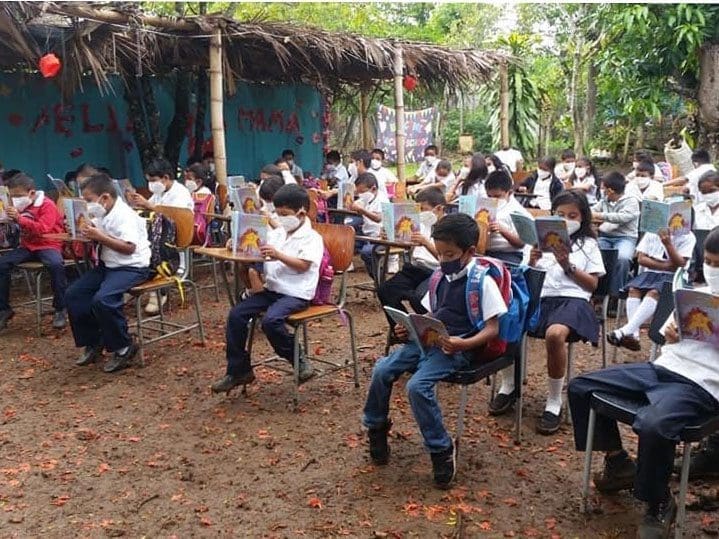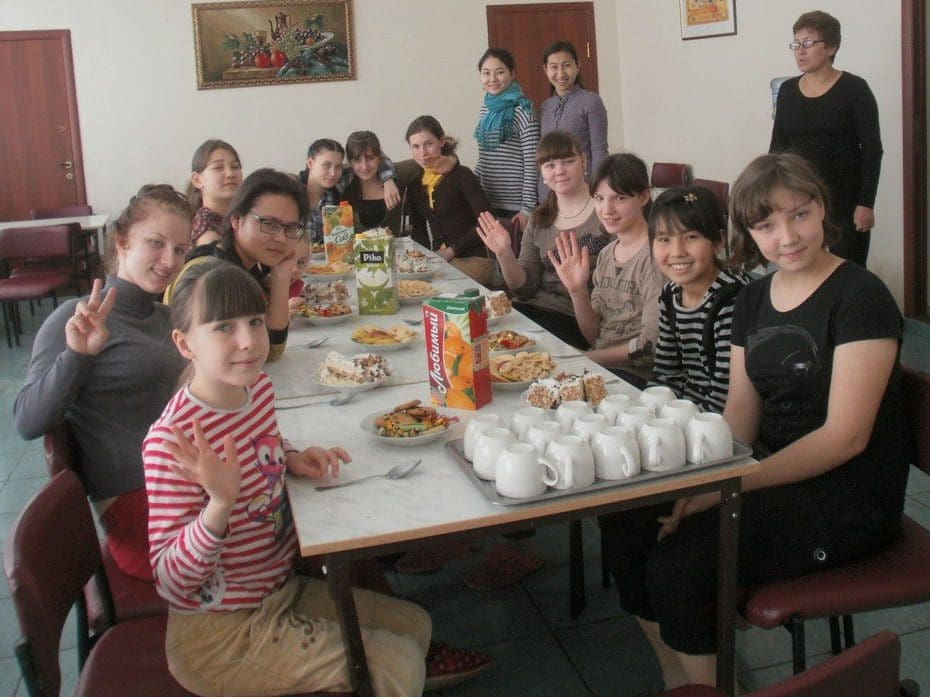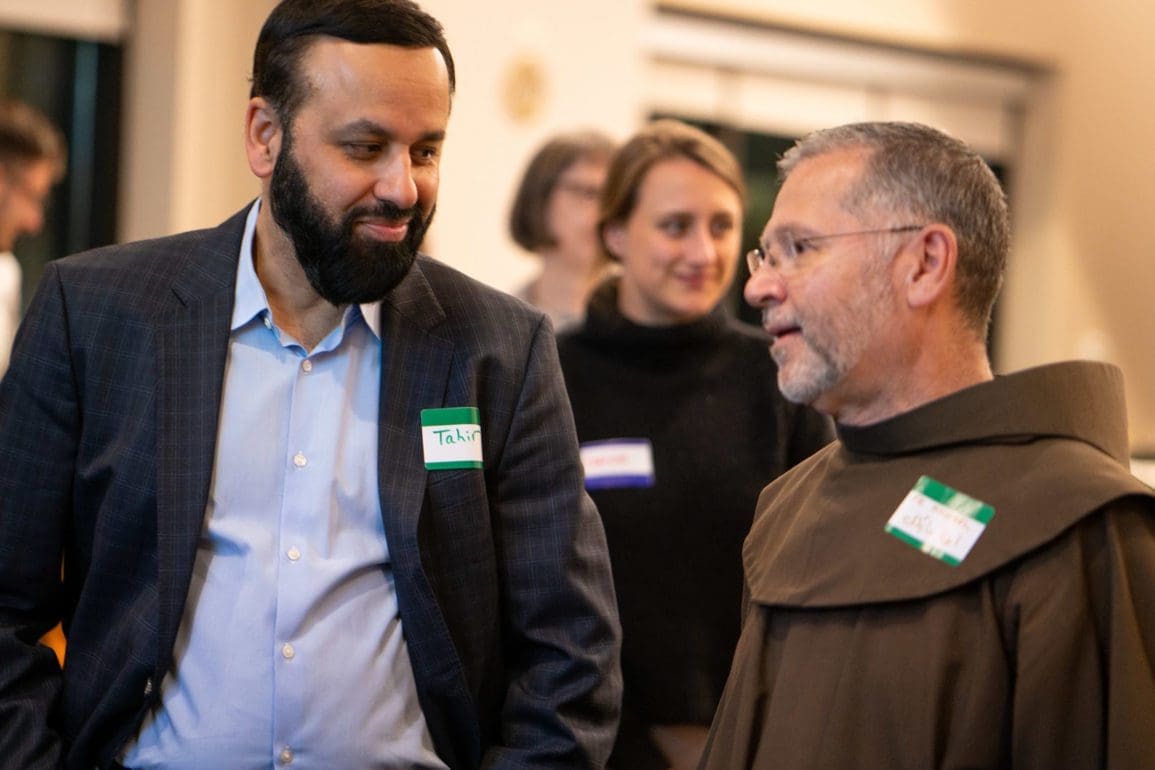Elephant relocation efforts from Mendoza Eco Park to Sanctuary in Mato Grosso: Team triumphs in groundbreaking transportation
Upon arriving at the sanctuary in the afternoon, a surge of love greeted us. For the elephants, the expanse of nature at the sanctuary spelled freedom. Their quiet elation resonated with me, and tears streamed down my face.
- 9 months ago
November 3, 2023

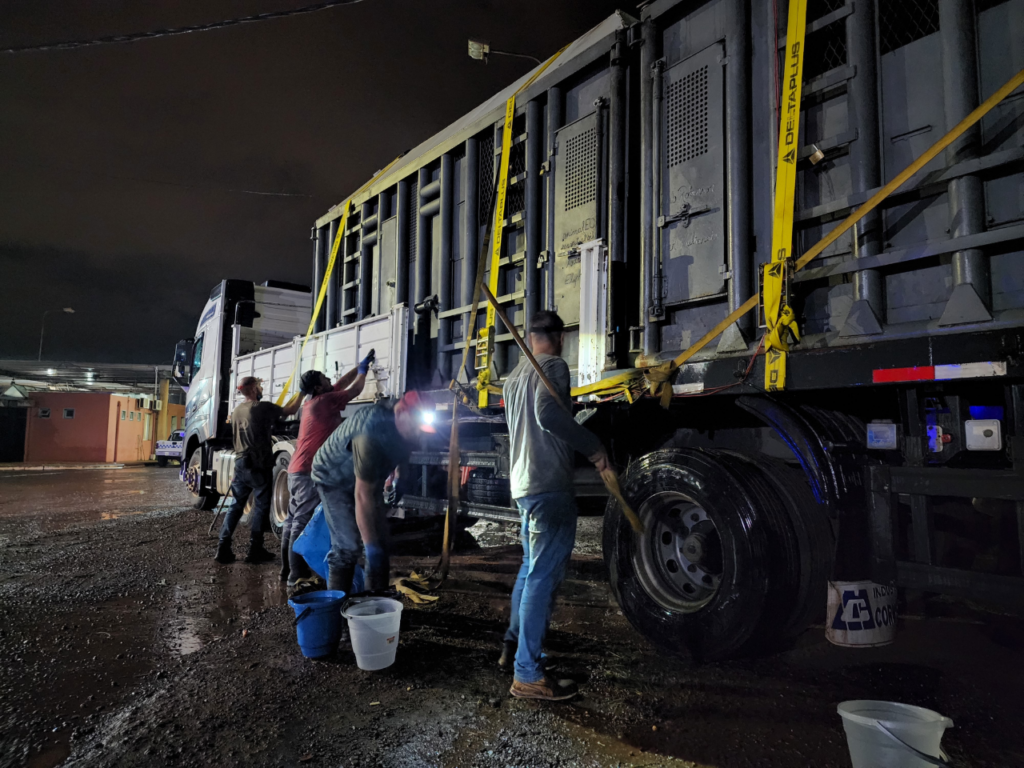


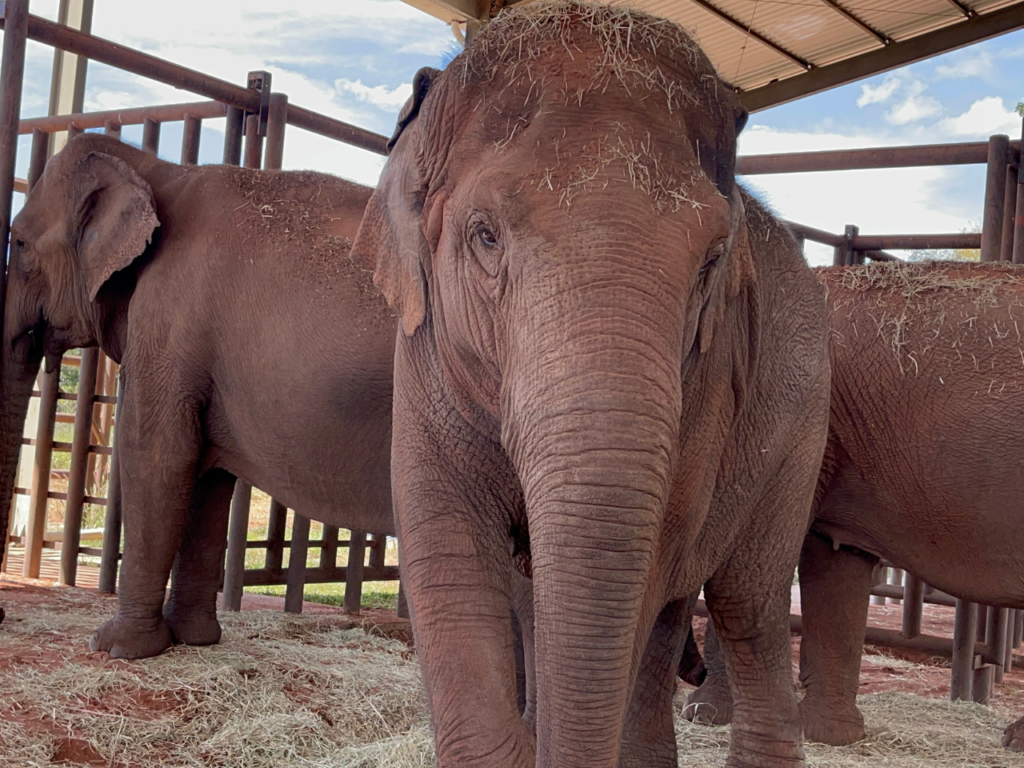

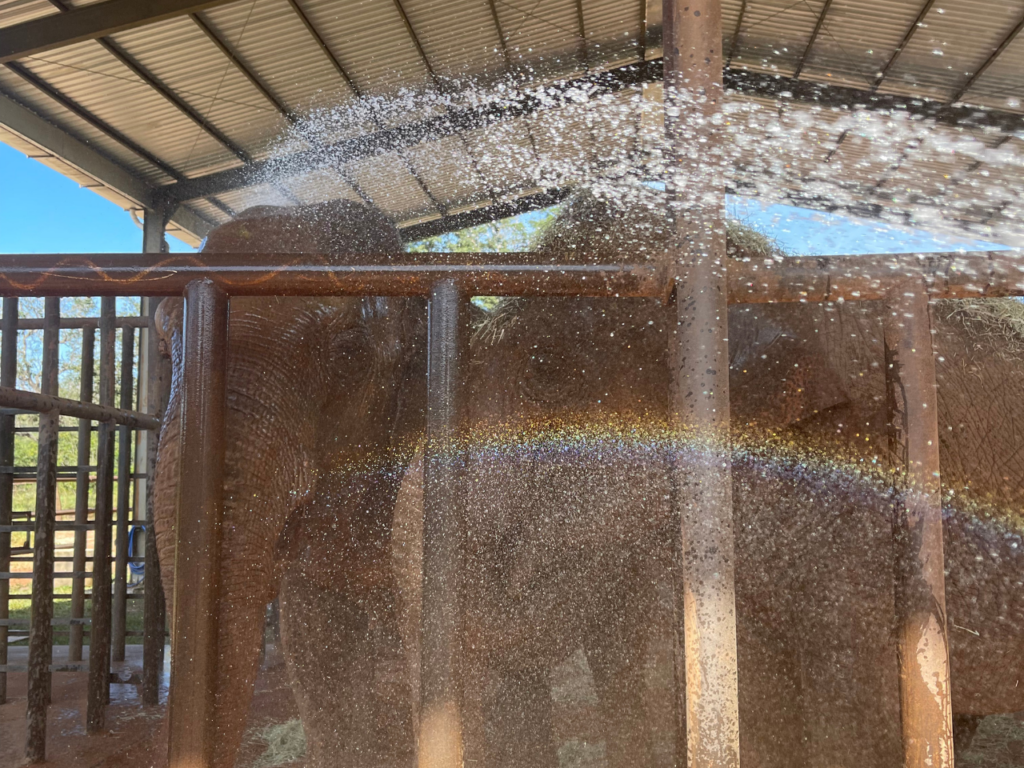
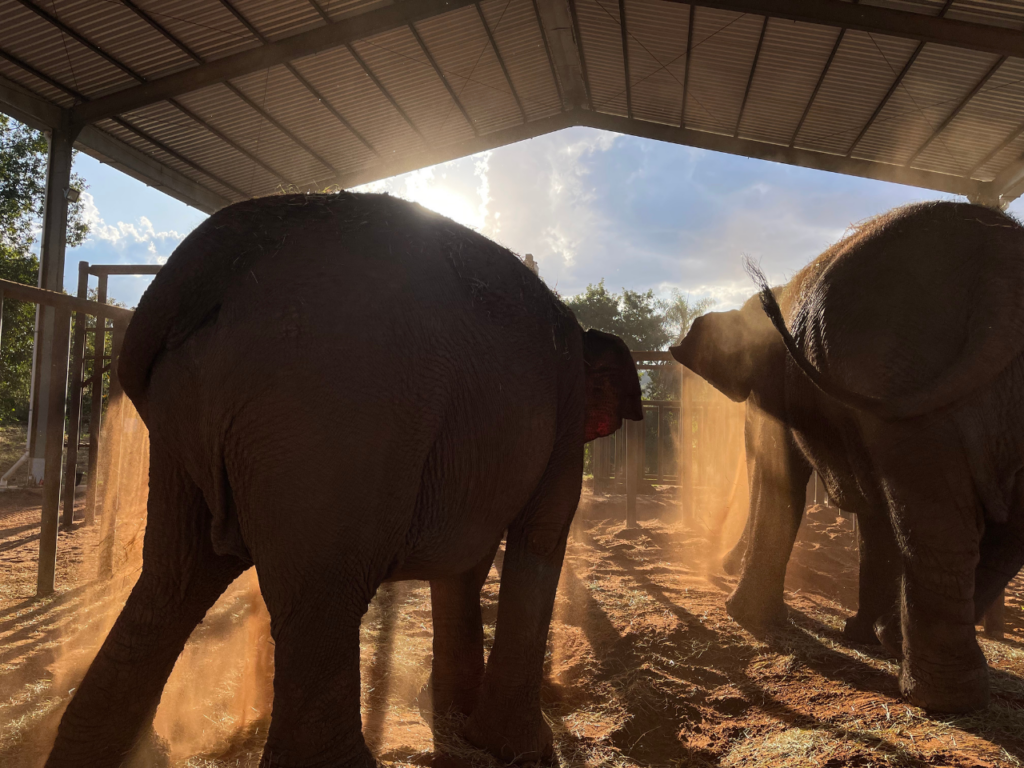
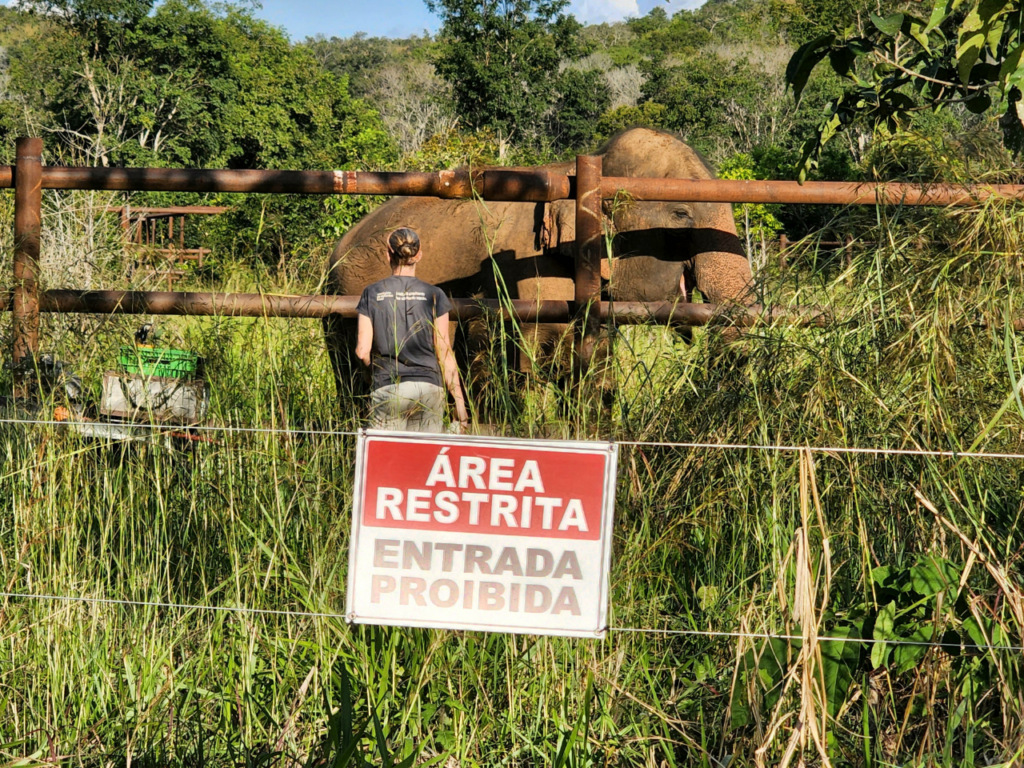
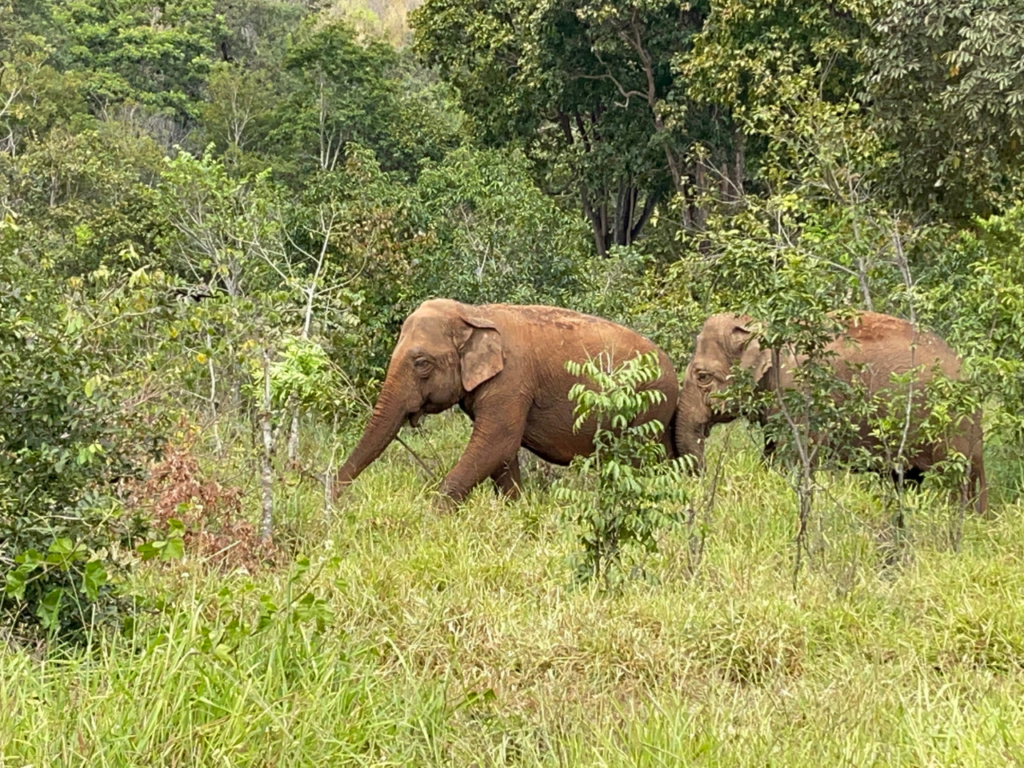

MATO GROSSO, Brazil — In 2016, the Mendoza government and the Elephant Sanctuary of Brazil, SEB, signed an agreement, kick-starting a seven-year mission to relocate two elephants. As part of the project, I committed to moving the elephants.
On the day I made my decision, I watched the mother Pocha and the daughter Guillermina standing at the edge of a stone pit in the park. These elephants endured 40 and 25 harsh years of confinement, respectively. Their enduring bond shone through their gestures and gazes.
For years, I charted their relocation through an intricate process. By May of 2022, we felt ready to embark on a five-day journey to move them. Every kilometer signified a step closer to reaching their sanctuary and the promise of a fresh start.
Read more environment stories at Orato World Media
Elephant relocation took years to achieve
My team and I led the charge for the next six years, unaware of the immense effort, training, and logistics required to move the elephants. Specialists from India and Brazil, along with the team at the Franz Weber Foundation, proved crucial. They arrived on scene, bringing essential knowledge to get both the elephants and us ready.
Our goal was to build trust with the elephants, equipping them to tackle the challenges of the move. Guided by the elephants’ responses to our preparations, we avoided any kind of force.
We celebrated each small step as a major triumph, creating an atmosphere charged with challenge, yet softened by affection. This serene energy enveloped our team, and emotions ran far deeper than words can describe.
With the elephants settled in containers, the five-day trek unfolded
In early May of 2022, we opened a new chapter in the relocation process. We settled the elephants into their custom containers. Their trunks tenderly intertwined, a moment that remains etched in my memory. The containers were hefty sanctuaries of steel and padding weighing five tons and featured live-streaming cameras for constant monitoring.
With safety as our priority, on May 7, my team skillfully guided the well-prepared elephants into their new quarters. We felt like trailblazers on this journey, driven by the elephants’ strong bond.
The task of loading them required effort and became wrought with emotion; we tensed our muscles as our eyes sparkled with tears. The five-day trek unfolded, each mile bringing Pocha and Guillermina closer to their new home.
Passing through towns, the astonishment and warmth of the locals punctuated our progress. Despite the media buzz, the heart of our mission retained its mystery. Our caravan evolved into a symbol of hope. We often heard people shouting, “Have a good trip!”
Upon arriving at the sanctuary in the afternoon, a surge of love greeted us. For the elephants, the expanse of nature at the sanctuary spelled freedom. Their quiet elation resonated with me, and tears streamed down my face. As they discovered their new environment and began making choices, I felt a profound shift. For all of us, this wasn’t just a move; it signified a new beginning.
Elephants reach Matto Grosso Sanctuary: “Watching them revel in the mud…and enjoy their freedom moved me.”
Pocha waited for 11 hours before stepping out of her container. Yet, once she overcame her hesitation, her joy was unmistakable. She and Guillermina quickly adapted, joining the sanctuary’s other elephants.
Watching them revel in the mud, make choices, and enjoy their freedom moved me. This new chapter changed each one of us involved in the process.
In the lead-up to the move, we glimpsed signs of Pocha’s health issues but lacked solid proof. Once at the Elephant Sanctuary Brazil, her initial sluggishness raised concerns. A multivitamin injection soon perked her up. While she turned her trunk up at hay, she devoured other treats.
When the elephants settled into their new environment, I returned to Mendoza, my home base. Keeping abreast of their progress, I welcomed six months of positive updates on the elephants’ adaptation.
“Pocha’s death shocked me,” elephant ceremony brings solace
The news of Pocha’s death on October 6, 2022, came as a shock. It was a blow we never anticipated. My colleagues at Matto Grosso called to tell me Pocha had passed, leaving me in a tearful haze. Yet, what they described next really struck me.
Guillermina’s loud trumpet called out to the other elephants at the reserve: Bambi, Mara, and Rana. The elephants heeded the call and rushed to her side. Rana sniffed at Pocha and Guillermina, then stepped back. Bambi paused a short distance away, her expression laden with concern. Mara came last, settling by Guillermina and her mother.
In their own time, each elephant paid their respects, touching Pocha softly with their trunks. After midnight, they stood in a silent circle around her. This profound testament to their bond remains a mystery to most humans.
Dealing with Pocha’s passing felt profoundly difficult for me. I recalled everything that happened during my time with them. Pocha always surrounded her daughter Guillermina with love and security. It was as though she knew her time was waning and focused on embedding Guillermina into the herd, making sure she would always have companionship.
Postmortem exams revealed her death: “That realization weighed on me”
Days after Pocha’s death, I traveled to the sanctuary in Brazil. Postmortem exams revealed her kidneys and other internal organs had suffered chronic damage.
In Brazil, when Pocha’s appetite waned slightly, her caregivers boosted her health with vitamins. We think their old Mendoza home, with its stale, damp air and scant light, may have harmed their health over time. The exact cause remains unclear.
The night before she died, a vitamin shot seemed to cheer her up. Yet, by the next night, my colleagues found her still and gone. That realization weighed on me. Yet, learning that the other elephants bade her goodbye, and that Guillermina was with her at the end brought me some solace.
Freedom’s sweetness before passing: Guillermina remains a legacy
Pocha experienced freedom before her passing and left that legacy to her daughter. Now, Guillermina flourishes at the sanctuary, her resilience stemming from her time with Pocha. If Pocha had passed in their old zoo, Guillermina might never have known this transformation.
Pocha taught us so much. We learned how to navigate travel boxes and she showed us how to handle a complex rescue. She survived long enough for Guillermina to form crucial new bonds. Postmortem exams revealed hidden health battles, underscoring Pocha’s incredible strength. She embodies spirit, perseverance, and grace.
I am grateful to work in a field I love, contributing to endeavors which offer animals like Pocha and Guillermina newfound joys – from the earth beneath their feet to the freedom of choice in their surroundings.
It has been a year since Pocha passed from kidney failure. We have worked on strengthening our health protocols. I’m now assessing Tamy, Guillermina’s father at Mendoza Ecopark, with fresh hope. My goal is to prepare him for a reunion with his daughter and friends in Brazil.
Drawing from my background in human prisons, I understand the toll of captivity. This empathy propels my resolve to improve these elephants’ lives. The urgency for change is clear, and I am committed to making a difference.
All photos courtesy of Franz Weber Foundation.








































































































































































































